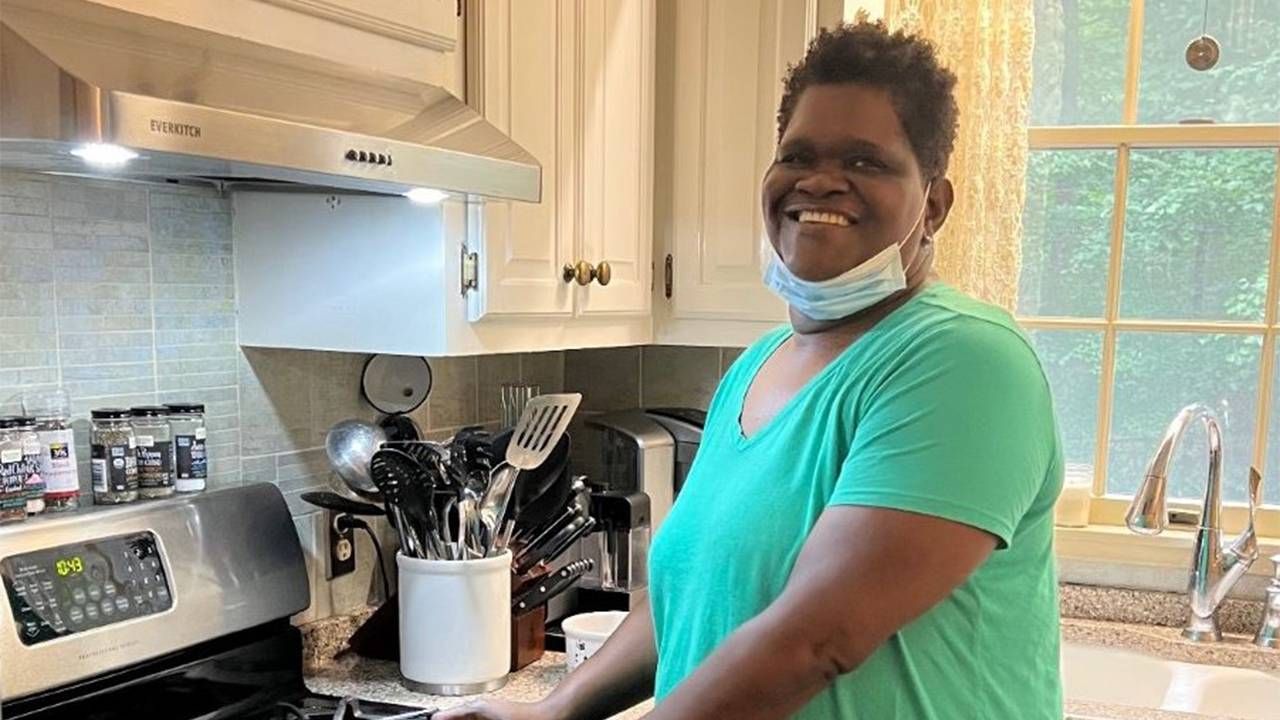How to Start Your Own Business and Still Have a Life
Getting a startup off the ground without working every available hour in the day requires discipline
Editor’s note: In this series, Next Avenue followed Patricia Wynn as she embarked on becoming an entrepreneur with her North Carolina lifestyle assistant business. This is the last installment in the series, noting her progress, with advice for her and for other midlife entrepreneurs.
Over the past nine months, Next Avenue has followed Patricia Wynn, 53, as she has run her startup lifestyle-assistant business, Patricia Services, LLC, which she established in Hillsborough, North Carolina, in April 2021.
The COVID pandemic and a brush with coronary artery disease were big motivating factors in her walking away from a general manager position and a three-decade-long career in the fast-food industry.

While developing a new business is certainly challenging, Wynn has found dusting, mopping, washing, cooking and providing companionship to clients much less stressful than dealing with the public and staff members at several McDonald's restaurants in Atlanta, where she spent 26 years, and Wendy's in Hillsborough, where she served as a general manager for five years.
"Every day when I'm working as a lifestyle assistant, I have a more relaxed environment than when I was managing in the fast-food industry — where there was always something stressful when I walked in the door," Wynn says. "Either workers called out sick, or the owner/operator was telling me we needed to get our numbers up and serve more people."
"Every day when I'm working as a lifestyle assistant, I have a more relaxed environment than when I was managing in the fast-food industry."
The idea of seeing business "by the numbers" initially motivated Wynn to want to build clientele quickly when she began with her first customers, Virginia and Dr. Redford Williams, a local couple in their early 80s.
A Wealth of Referrals from a Happy Client
"Ms. Virginia gave me a lot of referrals to new clients, with her connections as co-founder of a life skills company and colleagues of her husband, who recently retired as a Duke University professor of psychiatry and psychology," Wynn says.
However, the last nine months have showed her that gradual growth is a better fit.
"There was no reason to try and blow up to twenty clients in the first two months of business," Wynn says. "The first five or six clients came within two months of beginning with Ms. Virginia, due to her helpful referrals. That was quicker than I expected, and soon I was working fifty hours a week.
"I have eleven clients now," she continues, "and will need to get at least one part-time staff member if I add two or three more clients. Having twenty clients and a few staff members to help is still a goal for 2023, but it has been important for me take a step back and take my time to build my business."
She also has learned the importance of taking time for herself. "I didn't want to put myself back in the same stressful situation I had in my previous career, where you only have enough energy to work, come home and repeat the next day — without time for anything else in your life," she says.
The Importance of Setting Limits
For entrepreneurs, striking a balance between being available to customers and not working 24-7 requires discipline and a commitment to setting boundaries, according to Kimberly A. Eddleston, the Schulze Distinguished Professor of Entrepreneurship at Northeastern University's D'Amore-McKim School of Business in Boston.
"Not having down time will affect you and you may burn out."
"Even though being available is often a competitive advantage, a typical entrepreneur must discipline themselves and not answer emails or texts after a certain time of day," says Eddleston, who is a senior editor of EIX, the Entrepreneur and Innovation Exchange, which is a funder of Next Avenue.
"Not having down time will affect you and you may burn out," she warns. "You don't want to end up hating your business because you are exhausted and never take time away from it."
Delegate Work When You Can
Eddleston stressed the importance of entrepreneurs delegating responsibilities when they can, whether that means there is someone else on staff who can answer emails and texts, or at the very least, set up a recorded message that says, "You've reached us outside of our normal working hours, we will do our best to respond within 48 hours."
Scheduling some time away from a startup, whether that is attending a family gathering, exercising or doing something creative, may give entrepreneurs a chance to clear their minds and come up with business solutions later.
Often, after the first year, owners of startups may sense that their original ideas about their business may change. Or they adjust as they notice changes in their sales channels or customer base.
Daniel Forbes, a professor of entrepreneurship at the University of Minnesota's Carlson School of Management and a senior editor for EIX, advises owners of startups to be deliberate when developing business goals.
Stick to Your Plan, Even if You Change It
"It's helpful to make your goals explicit — for example, write them down and refer to them from time to time — and if you have multiple goals, try to prioritize them clearly," Forbes says.
"Over time," he adds, "you may decide to change or reprioritize your goals. And that's okay too, but try to do that consciously and deliberately."
Eddleston agrees that as startups move from the first year toward the second year in operation, they go through a process of fine tuning. "It's time to think of the broader goals of why you started the business," she says. "This also helps you see who you may need to hire."
"If the original recipe isn't working, you've got to be able to tweak it and offer what customers want."
"If the original recipe isn't working," she adds, "you've got to be able to tweak it and offer what customers want. You want to build your business around a competitive advantage and capitalize on that."
Think Big, But Grow Slowly
Wynn has been researching how to attract commercial clients like banks, car dealerships or local universities for their light cleaning needs, in addition to her residential customers.
"I've been talking to Ms. Virginia about helping me to write a proposal for commercial clients who need dusting, mopping, cleaning of restrooms," Wynn says. "Not the work that an industrial cleaning operation would do with heavy duty equipment, like floor buffers."
As Patricia Services, LLC moves forward, Wynn says she is still learning about staffing because her priorities for 2023 are to build her clientele and find someone responsible and trustworthy who can help her serve additional customers.
Seeking Help from SCORE
I'm going to SCORE (the national network of volunteer expert business mentors and resource partner with the U.S. Small Business Administration) to look at some of their hiring techniques," she says, "and I'm considering running an ad with Indeed and the local Department of Labor."
Wynn's advice to other 50+ prospective entrepreneurs is to step out of their comfort zones.
"If you have a job that is stressful, you need to take the time to think about doing something that allows you to live your life, and not only work."
"I want them to know that we get stuck in our careers because that is what we've always done to pay the bills," she says. "Whatever you have that you like to do — you should see how you can present it to the world and make money from it. It was the pandemic that woke me up and made me reconsider what I was doing."
She adds, "If you have a job that is stressful, you need to take the time to think about doing something that allows you to live your life, and not only work."
By pacing the growth of her business, Wynn was able to attend a recent family reunion and has made more time for administrative duties and considering the next steps for Patricia Services, LLC.
Editor’s note: This article is part of America's Entrepreneurs, a Next Avenue initiative made possible by the Richard M. Schulze Family Foundation and EIX, the Entrepreneur Innovation Exchange.


